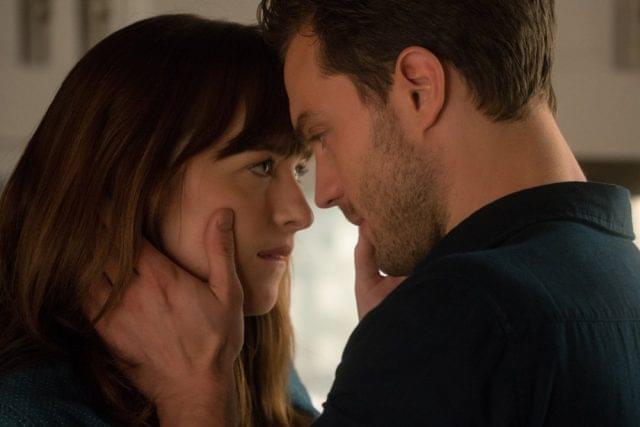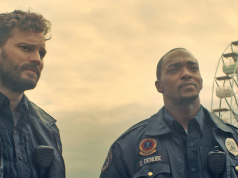
Fans of the “Fifty Shades of Grey” movie may have been nervous when they heard the sequel, nonsensically titled “Fifty Shades Darker,” would have a different director. I’m kidding, of course; people who liked “Fifty Shades of Gray” don’t pay attention to things like that. But if they did, they could rest easy, as James Foley seems committed to preserving the atmosphere of flavorless, plot-free tedium and unsexy smut established by Sam Taylor-Johnson (and, presumably, carried over from E.L. James’ novels, though there is no realistic way to know for sure).
This time, bland billionaire Christian Grey (Jamie Dornan) persuades spineless Anastasia Steele (Dakota Johnson) to be his girlfriend again by promising to keep the sex vanilla. “No rules, no punishments.” That urgent need he has to dominate his lover? He can totally ignore it and be chill. Ana thinks this sounds like a good plan and starts dating him again, though she puts off having sex for two whole days.
But hold the phone, Hector! Christian immediately starts being possessive and controlling even though he said he wouldn’t! He does the usual things: buys the company Ana works for — it’s a small publishing house, where she’s the assistant to fiction editor Nick Hyde (Eric Johnson), an aggressively solicitous horndog set up to be a problem later in the film — and puts $24,000 in her bank account against her will. Typical domineering boyfriend stuff. Ana identifies Christian’s controlling behavior as problematic and potentially relationship-ending, but she stays with him because at least he’s still respectful of boundaries in bed, where it counts.
The film has numerous potentially juicy subplots, including encounters with the woman (Kim Basinger) who Mrs. Robinson’d Christian years ago, and with one of his previous submissives, a bedraggled wraith named Leila (Bella Heathcote). But each time melodrama or conflict arises, it is hastily, tidily resolved, sometimes within the same scene. Christian’s helicopter goes missing? Back in a minute. Fiction editor Nick Hyde, absent since his introduction, reappears to make obscene advances on Ana? She kicks him in the groin and runs off; he’s fired and she gets his job. The movie is ruthless about this, smothering all sparks of a plot before they can take hold.
For a movie about intense emotions, it’s curiously flat, as Dornan and Johnson both tend to maintain almost neutral expressions even when hearing or saying things of great passion. Perhaps this is an acting choice? Or perhaps the inept and pedestrian dialogue defies delivery? (The screenplay is by Niall Leonard. Who can say how much of it is straight from the book?) At any rate, it’s vital that Ana and Christian constantly declare their love for one another, because the viewer would never know it by watching them. They don’t amuse or delight each other. They aren’t witty, interesting, or smart. They have nothing to talk about besides their relationship (which at all times sucks for one or both of them) and their individual past traumas. Nothing seems authentic in this world; everyone’s fetishes and hang-ups come across as just goofy. Or maybe that’s just Seattle?
D (1 hr., 58 min.; )





